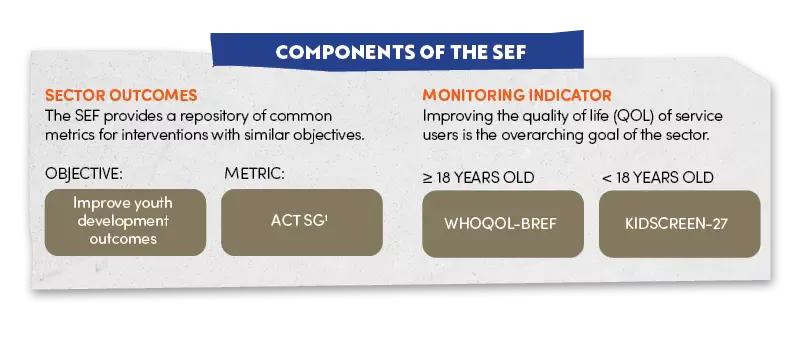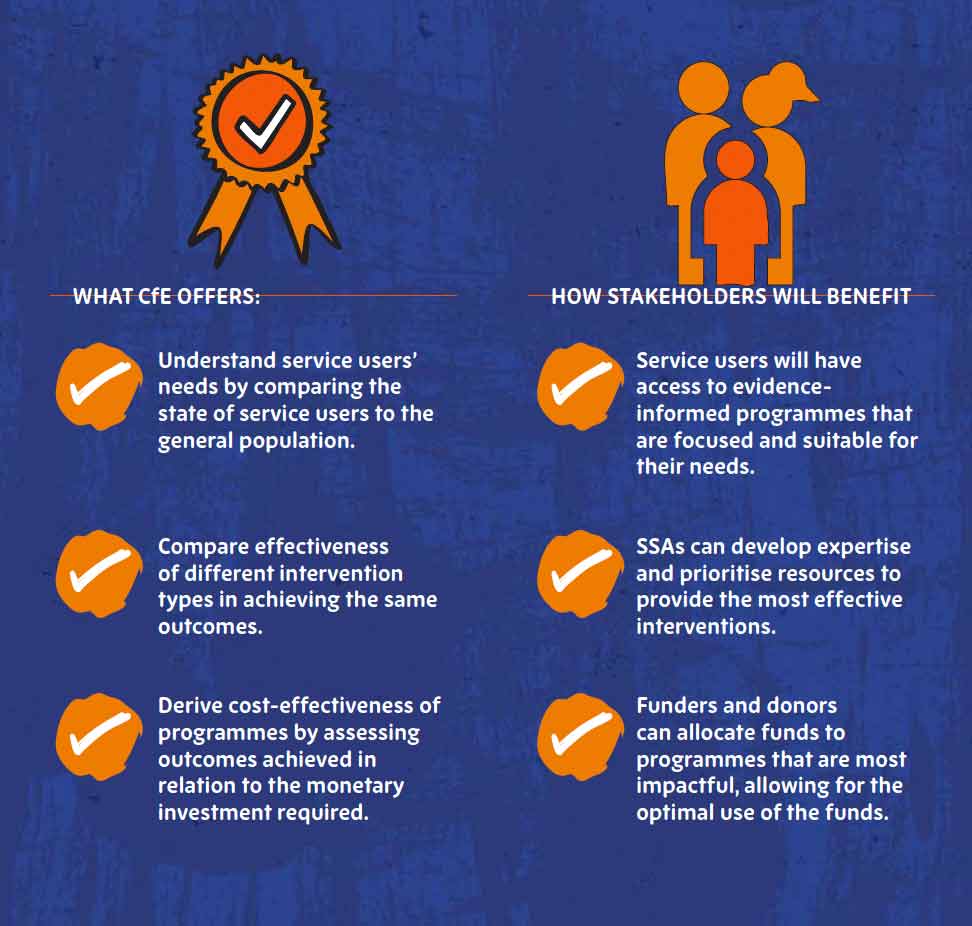
Measuring Impact
Moving Towards A Common Language To Measure And Articulate Impact
Launched in September 2021, the Sector Evaluation Framework
(SEF) aims to introduce consistency in how programme outcomes are measured across the sector. This is done through using consistent and validated outcome measures for all programmes with the same objective.
As a result, the SEF provides a common language for different stakeholders in the sector to measure programme outcomes, track the progress of service users and articulate impact. This paves the way for more clarity, accountability and ultimately, better outcomes for service users.
The SEF is being implemented across the sector. More than 70 programmes from over 40 social service agencies have been onboarded to the Framework, enabling standardised outcome evalutation.
The SEF consists of 2 components:

Through Community Chest, your support helps fund programmes that are measured against established standards to identify the most effective approaches. As more programmes adopt the SEF, the performance data collected helps us understand what works best, building an evidence-based social service sector.
The SEF provides a repository of common metrics for interventions with similar objectives.
An example is using ACT SG to measure programmes that seek to improve positive youth development competencies.
Quality of Life
Improving the quality of life (QOL) of service users is the overarching goal of the sector.
The Centre for Evidence (CfE), launched in 2024, is a joint initiative by NCSS and Tote Board to strengthen evidence-based practices in the social service sector. CfE leverages the SEF to set the standards for what effective programmes look like across the sector. Through its collection of proven interventions,
-
Donors are assured that their contributions support services with proven impact
-
SSAs gain confidence that their programmes create meaningful change
-
Service users receive care that has been proven to be effective.

*The SEF repository of metrics are reviewed periodically, please contact us at research@ncss.gov.sg if you are interested to find out more about the latest metrics being used.
Find out more about the overview of the sector landscape or view the full FY2024 Impact Report (PDF).